Introduction
History deals with the past but informs the present and the future. Full of interesting facts, stories and people, it helps students to reflect on their own lives by showing them the lives of others.
History students develop research, study, analysis and interpretation skills, providing them an opportunity to look at how our past has influenced the way we live today.
What do students study in history?
Key Stage 3 Curriculum Overview
Norman conquest and the changes on England, exploration of power in medieval England, the reformation and its consequences on tudor Britain
Early European empires, exploration of power in Stuart Britain, the industrial revolution and its impact on Britain, impact of the British Empire on its occupied countries, causes of the Black Lives Matter Movement and its importance
Women's lives through history, comparison of the causes of WW1 and WW2, impact of WW1 and WW2 on warfare, dictators and their methods of control, development of anti-semitism into the Holocaust, modern atrocities - have we learnt our lesson from WW2 and the Holocaust?
Key Stage 4 Curriculum Overview
USA 1920-73: Opportunity and inequality - 1920s boom, 1930s depression, 1940s and 50s American dream, 1960s civil rights movement, 1970s women's rights
Norman England - Norman conquest, life under the Normans, Normans and religion, site study
Power and the people (reform through time) - middle ages e.g. Magna Carta, early modern e.g. English Civil War
19th Century e.g. the Chartists
20th Century e.g. women’s suffrage
Conflict and tension 1918-1939 - Treaty of Versailles (after WW1), League of Nations and its peacekeeping impact, outbreak of WW2


